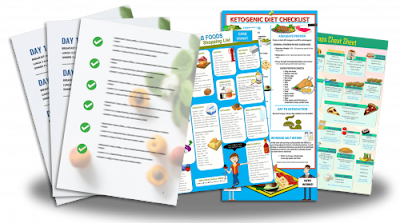What is the best food to eat after throwing up?
- Get link
- X
- Other Apps
What is the best food to eat after throwing up?
If we have nausea, vomiting and general malaise, we have to take great care of our diet. This does not imply that we stop eating, as it can be counterproductive and cause more fatigue. You just have to know what you can eat after vomiting.
Being nauseated and vomiting is a very unpleasant process, but it is usually quick. If hours pass and we do not improve, it is advisable to go to the nearest medical centre. Vomiting can be caused by a stomach disease, a virus, food poisoning, pregnancy, or another reason we don't believe.
The normal thing is not to want to eat or drink anything so as not to vomit more, but some experts recommend eating, especially if the body asks for it. It is recommended not to stop hydrating, so small sips should be taken. The best is the serum that you buy at the pharmacy, but water is also a very good option.
Those who experience vomiting seem to tolerate certain foods better than others, such as soft rice, pasta, potatoes, crackers, and cold foods. Other foods and drinks can even improve nausea symptoms, such as ginger, certain teas, and high-protein foods.
Vomiting, or throwing up, can be caused by a variety of factors, including viruses, food poisoning, motion sickness, and morning sickness during pregnancy. Regardless of the cause, vomiting can be a miserable experience that leaves you feeling weak and dehydrated. After vomiting, it is important to replenish your body with fluids and nutrients to help you feel better. In this blog post, we will explore the best foods to eat after throwing up.
First and foremost, it is important to start with fluids. Vomiting can cause dehydration, which can make you feel worse and prolong your recovery time. Sipping on clear fluids, such as water, herbal tea, or electrolyte-rich beverages, is a good place to start. It is important to avoid sugary drinks, such as soda or fruit juice, as these can further upset your stomach and may cause diarrhoea.
Electrolyte drinks, such as sports drinks or coconut water, can help replace lost fluids and minerals. These drinks contain electrolytes such as sodium and potassium, which help regulate fluid balance in your body. However, it is important to choose a drink with low sugar content and avoid drinking too much at once, as this can cause stomach upset.
Once you can tolerate clear fluids, you can start introducing bland, easy-to-digest foods. These foods should be low in fat, fibre, and spices, as these can irritate your stomach and make you feel worse. Here are some examples of bland, easy-to-digest foods to eat after vomiting:
Bananas: Bananas are an excellent source of potassium, which is an electrolyte that can help regulate fluid balance in your body. They are also easy to digest and can help settle an upset stomach.
When you are sick and feel like vomiting, it can be difficult to eat significant amounts of food. Therefore, it is important that the food we do eat is nutritious and provides energy to help the body stay strong and recover. This is especially true if your nausea is due to a chronic condition and you have difficulty maintaining weight.
Bananas are a nutritious, energy-dense snack that's easy to eat even when we're sick. In addition, bananas help replace ssium which can be lost if we have vomited.
Toast: Plain, dry toast is a good source of carbohydrates, which can provide energy to your body without upsetting your stomach. Avoid adding butter or jam, as these are high in fat and can be difficult to digest.
Crackers: Saltine crackers or other bland crackers are easy to digest and can help settle an upset stomach.
Rice: Plain, white rice is a good source of carbohydrates and can be easy to digest. You can try adding a little bit of salt or broth to flavour the rice, but avoid adding any spices or sauces.
Simple, starchy foods like rice, potatoes, and noodles are good choices when you've just thrown up. They are easy to prepare, high in calories, and help settle the stomach.
Soft, colourless, and odourless foods are often more easily tolerated, as they cause less nausea than strongly flavoured foods. Rice can be boiled or steamed and eaten plain or with a light seasoning. It can also be eaten cold if hot food is unpleasant.
Alternatively, the potatoes can be boiled, steamed, baked, or mashed with a little butter and milk for extra calories. On the other hand, noodles can be boiled and eaten on their own. They can also be added to a broth to increase fluid intake.
Applesauce: Applesauce is a good source of carbohydrates and can be easy to digest. Choose unsweetened applesauce to avoid excess sugar.
Chicken broth: Chicken broth is a good source of electrolytes and can help replenish lost fluids. It is important to choose a low-sodium broth to avoid excess salt, which can further upset your stomach.
Another of the best foods for vomiting is chicken. Its protein can speed up the healing process and boost the immune system.
Protein sources, like chicken, are important to keep eating when we've been vomiting for a while. This is because protein promotes healing and keeps the immune system strong. Also, eating chicken and other proteins along with light carbohydrates can increase your overall calorie intake, which is hard to do when you're sick.
Ginger: Ginger has long been used as a natural remedy for nausea and vomiting. You can try drinking ginger tea or adding ginger to your food to help settle your stomach.
It is important to eat small, frequent meals after vomiting, rather than trying to eat a large meal all at once. This can help ease your digestion and prevent further nausea or vomiting. You should also avoid eating too quickly or lying down immediately after eating, as this can increase your risk of reflux or heartburn.
In addition to choosing the right foods to eat after vomiting, it is also important to avoid certain foods that can further irritate your stomach. Here are some foods to avoid after vomiting:
Spicy foods: Spices, such as chor powder or cayenne pepper, can irritate your stomach and cause further nausea or vomiting.
Fatty foods: Foods high in fat, such as fried foods or creamy sauces, can be difficult to digest and can cause further stomach upset.
Dairy products: Dairy products, such as milk or cheese, can be difficult to avoid after vomiting and may worsen your nausea or vomiting.
Citrus fruits: Citrus fruits, such as oranges or grapefruits, can be too acidic for your stomach after vomiting and may cause further irritation.
Caffeine and alcohol: Caffeine and alcohol can dehydrate you and may worsen your nausea or vomiting. It is best to avoid these drinks until you are feeling better.
Water and clear drinks
The most important thing when we vomit is to ensure adequate hydration by drinking plenty of water and electrolyte-rich beverages.
Water
When we have nausea and vomiting, we may not feel like eating anything. However, drinking fluids and staying hydrated is crucial, especially if we've been vomiting or have a fever. Water is always a good source of hydration, but if you've been vomiting, you may need to replace lost electrolytes as well.
Oral rehydration solutions or oral serum
Sport drinks
Sparkling water or flavoured soft drinks
Iced tea
clear juices. Lemon water is a great remedy to cure nausea, due to the neutralizing acids it contains. We will try adding freshly squeezed lemon juice to the water and sipping throughout the day. If the nausea is due to constipation, drinking warm water with lemon juice can stimulate the intestines.
Coconut water. Coconut water is high in potassium and can remove excess water from the body. It soothes the stomach, is easy to digest and also prevents constipation.
Very sweet, caffeinated, or dairy-based drinks can make nausea worse, so it's best to avoid them. We may be more tolerant of cold drinks throughout the day than many at once, especially if we've been vomiting.
If your vomiting persists for more than a day, or if you are unable to keep down any food or fluids, it is important to seek medical attention. Persistent vomiting can lead to dehydration and electrolyte imbalances, which can be dangerous if left untreated.
Nausea and vomiting are not always synonymous with illness. They can be a temporary process that does not compromise the health of the person. It is not healthy to eat quickly and without chewing. It is not advisable to eat a copious or very abundant shouldu should wait the recommended time (between 2 and 4 hours) after vomiting to start drinking and eati It is convenient to start th intake after vomiting in the form of easily digestible liquid foods such as water or chamomile. It is not convenient to lie down immediately after eating. It favours the appearance of reflux of the contents of the stomach to the mouth. It is not advisable to exercise immediately after eating. Vomiting should not be induced after ingestion. It is not recommended to self-medicate.
In conclusion, choosing the right foods to eat after vomiting can help you recover more quickly and feel better. Starting with clear fluids and then gradually introducing bland, easy-to-digest foods can help replenish lost fluids and nutrients. It is important to avoid spicy, fatty, or acidic foods that can further irritate your stomach, and to eat small, frequent meals rather than large meals all at once. If your vomiting persists, it is important to seek medical attention to prevent dehydration and other complications.
My recommendation for maintaining your good health click the following link and get good results:
https://www.digistore24.com/redir/446396/sundaramvkl5619/
- Get link
- X
- Other Apps


Comments
Post a Comment